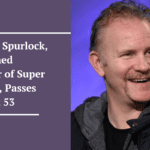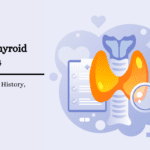The highest court in the United Nations recently told Israel to put a stop to its military attack on a place called Rafah. Rafah is a city in the southern part of Gaza, which is a region near Israel. This court, also known as the International Court of Justice or the World Court, had previously given some instructions in March to help the situation in Gaza, but those instructions didn’t fully fix things.
So now, they’re saying Israel needs to do something right away to stop the fighting in Rafah. The president of the court, Nawaf Salam, made it clear that Israel must stop its military actions in Rafah immediately.
UN Court Orders Israel to Halt Military Actions in Gaza’s Rafah
The highest court of the United Nations has instructed Israel to immediately stop its military actions in Rafah, a city in southern Gaza. However, it hasn’t demanded a complete cease-fire for the region. Despite the expectation that Israel may not follow this directive, it adds pressure on the country, which is increasingly finding itself isolated.
Criticism of Israel’s actions in the Gaza conflict, especially in Rafah, is on the rise. This week, three European nations declared their intention to recognize Palestine as a state, while another international court’s top prosecutor sought arrest warrants for leaders from both Israel and Hamas.
Also Read: China’s Show of Strength: Understanding Military Drills Near Taiwan
South African Court Rules on Israel’s Actions in Rafah
The court supported South Africa’s request to urge Israel to stop its military action in Rafah. This came after Pretoria raised concerns about Israel’s actions, accusing them of genocide.
Outside the court, a small group of people supporting Palestine demonstrated by waving flags and playing music calling for Palestine’s freedom.
Israel has denied the genocide accusations, stating that its operations in Gaza are for self-defense, targeting Hamas militants who attacked Israel on October 7.
A spokesperson for the Israeli government emphasized that they would continue to protect their citizens and pursue Hamas in Gaza, regardless of any opposition.
This month, Israel launched an attack on Rafah, leading to the displacement of hundreds of thousands of Palestinians who had sought refuge in the city.
Israeli Operations in Rafah
Certainly! Here’s a revised version:
Rafah, a town on Gaza’s southern border, serves as a crucial entry point for aid. However, recent Israeli operations have isolated the area, raising concerns about a potential famine.
Last week, South Africa urged the International Court of Justice (ICJ) to intervene, demanding an end to Israel’s attacks on Rafah to safeguard the Palestinians’ well-being.
The ICJ, a top United Nations body for resolving disputes between countries, has the authority to issue final and binding rulings. However, it lacks the power to enforce its decisions, which have been ignored in the past.
If the ICJ rules against Israel, it could increase diplomatic pressure on Prime Minister Benjamin Netanyahu’s government.
Meanwhile, the International Criminal Court’s chief prosecutor has sought arrest warrants for Netanyahu, Defence Minister Yoav Gallant, and Hamas leaders. They are accused of various crimes, including targeting civilians and using starvation as a weapon. Israel has vehemently denied these accusations and called on its allies to reject the court’s actions.
South Africa’s broader case accuses Israel of orchestrating a genocide against the Palestinian people. While the ICJ has not yet ruled on this accusation, it has dismissed Israel’s attempts to dismiss the case, though a final judgment could be years away.
Legal Orders and Conflict in Gaza
In past legal decisions, the court instructed Israel to prevent genocide against Palestinians and allow aid into Gaza. However, they didn’t mandate a stop to Israeli military actions.
Israel initiated an air and ground offensive on Gaza in response to Hamas-led militants entering Israeli communities, resulting in casualties and hostages. The conflict has led to significant Palestinian casualties, according to Gaza’s health ministry.
Also Read: Ireland, Norway, and Spain Recognize Palestine as a State
Frequently Asked Questions (FAQs)
Q.1. What is the International Court of Justice’s role in the Gaza conflict?
Ans. The ICJ issues legal instructions, urging Israel to halt military actions in Gaza’s Rafah region.
Q.2. What prompted South Africa’s involvement in Gaza’s affairs?
Ans. South Africa raised concerns about Israel’s actions in Rafah, accusing them of genocide.
Q.3. What consequences could Israel face if the ICJ rules against them?
Ans. A ruling against Israel could increase diplomatic pressure and international scrutiny on its government.
Q.4. What accusations does the International Criminal Court make against Israeli and Hamas leaders?
Ans. They are accused of crimes including targeting civilians and using starvation as a weapon.
Q.5. How does Israel respond to these accusations?
Ans. Israel denies the genocide allegations and asserts its actions in Gaza are for self-defense against Hamas militants.







